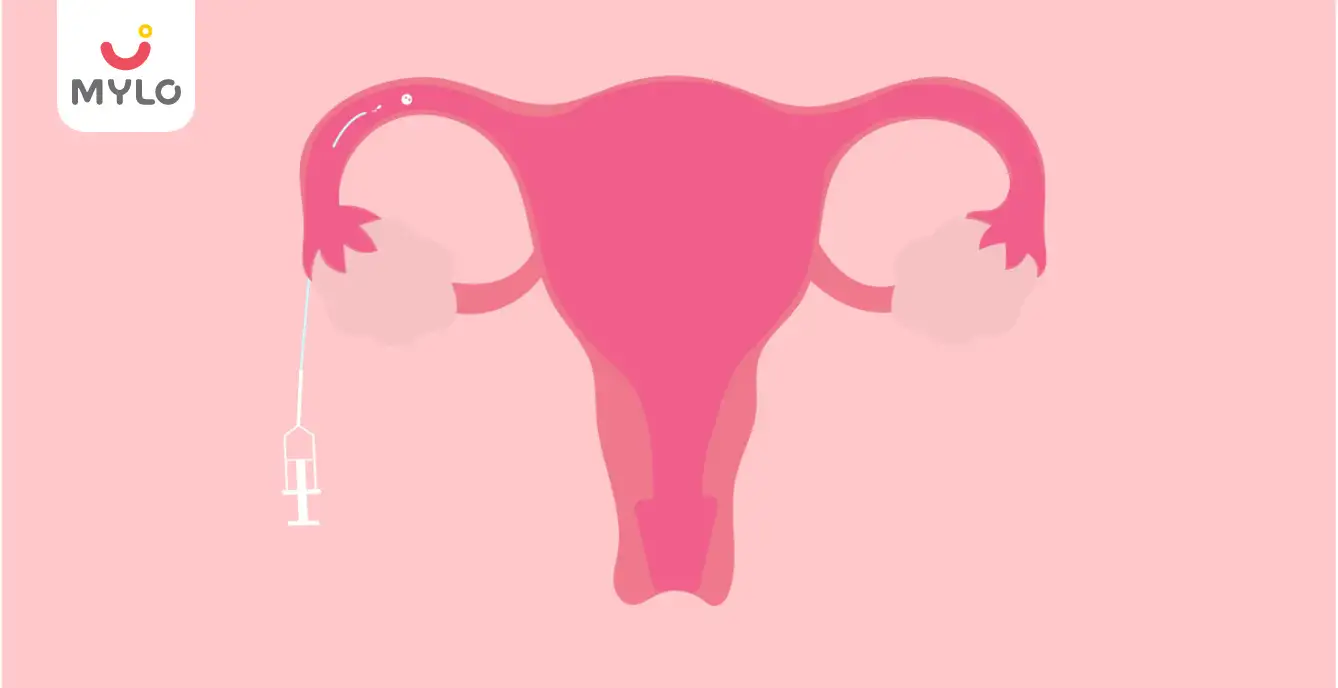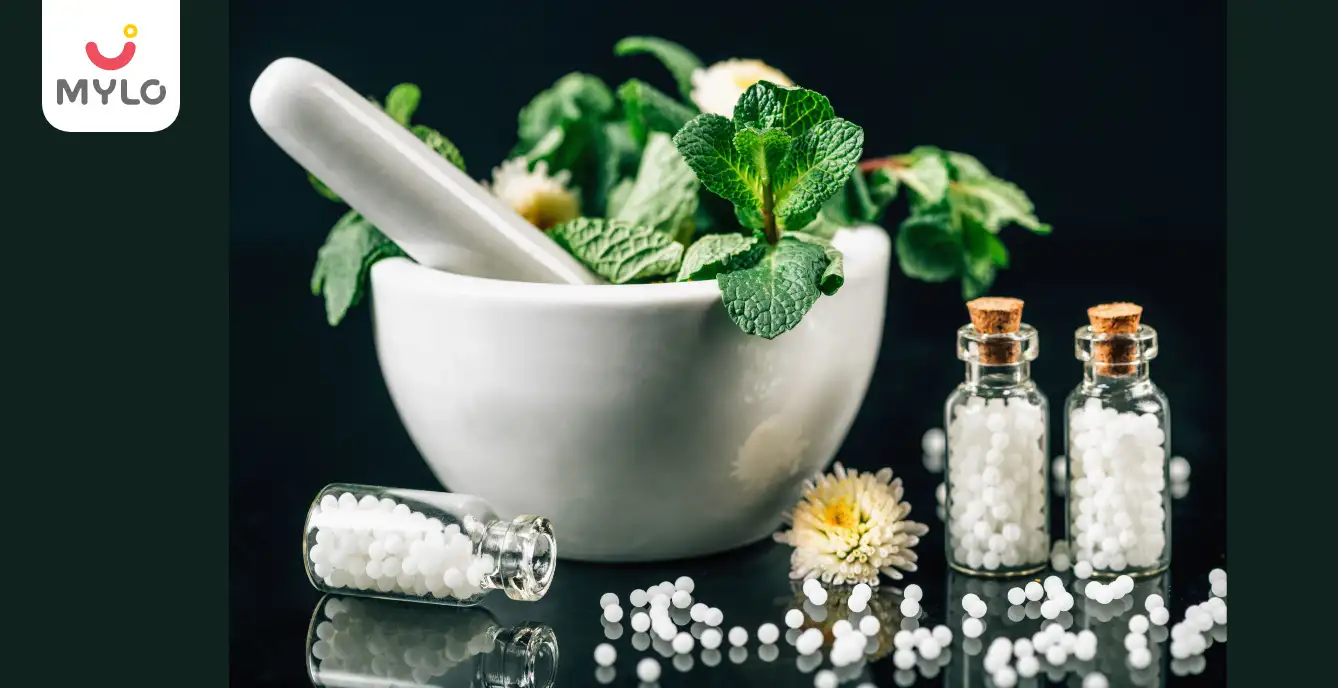Home

Conception

How to Increase Endometrial Thickness: Your Guide to Science-Backed Tips
In this Article

Conception
How to Increase Endometrial Thickness: Your Guide to Science-Backed Tips
Updated on 6 September 2023



Medically Reviewed by
Dr. Shruti Tanwar
C-section & gynae problems - MBBS| MS (OBS & Gynae)
View Profile

If you're struggling with a thin endometrium, you're not alone. Many women face challenges when it comes to preparing their uterus for successful implantation and pregnancy. But fear not, because in this article, we will explore a range of science-backed tips that can help you in your quest on how to increase endometrial thickness.
From lifestyle changes to dietary adjustments and medical interventions, we've got you covered. So, let's dive in and discover effective strategies to enhance your endometrial lining and improve your chances of conceiving.
Why is it Important to Increase Endometrial Thickness?
The thickness of the endometrium, the lining of the uterus, plays a crucial role in a woman's reproductive health. A thick and healthy endometrium is essential for successful implantation of a fertilized egg, leading to a healthy pregnancy.
When the endometrial lining is too thin, it can pose challenges for conception and increase the risk of miscarriage. Understanding the importance of increasing endometrial thickness is vital for women who are trying to conceive or undergoing fertility treatments.
A thin endometrium can be caused by various factors, such as hormonal imbalances, certain medical conditions, or previous surgeries. It can be frustrating for women struggling with thin endometrial lining, but there are science-backed methods to promote its growth and thickness.
How to Increase Endometrial Thickness?
If you’re wondering how to increase endometrial thickness for pregnancy, then it involves a combination of lifestyle modifications, medications, and natural remedies. By following these tips, women can improve their chances of achieving a thicker endometrium and enhancing their fertility.
1. Optimize Hormonal Balance
Hormones play a crucial role in endometrial development. It is essential to ensure that hormonal levels are balanced for optimal endometrial growth. Consulting with a fertility specialist can help identify any hormonal imbalances and determine the appropriate treatment plan, which may include medications or hormone replacement therapy.
2. Nutrient-Rich Diet
A healthy diet rich in specific nutrients and foods to increase endometrial thickness can help. Nutrients like vitamin E, vitamin C, omega-3 fatty acids, and iron are known to support endometrial health. Foods such as leafy greens, berries, citrus fruits, fish, nuts, and seeds should be included in the diet to provide the necessary nutrients for endometrial growth.
3. Herbal Supplements
Certain herbal supplements have been used in traditional medicine to promote endometrial thickness. Herbs like Dong Quai, Red Raspberry Leaf, and Vitex Agnus-Castus are known for their potential benefits in improving endometrial health. However, it is important to consult with a healthcare professional before incorporating any herbal supplements into your routine.
You may also like : Endometrial Scratching: The Ultimate Guide to Meaning, Benefits and Impact on Conception
Medicine to Increase Endometrial Thickness
When natural methods alone are not sufficient, medications can be prescribed to increase endometrial thickness. Here are five commonly used medicines that have shown promising results in thickening the endometrial lining:
1. Estrogen Supplementation
Estrogen is the primary hormone responsible for endometrial growth. In cases of hormonal imbalance or inadequate estrogen levels, estrogen supplementation can be prescribed to promote endometrial thickening.
2. Progesterone
Progesterone is another hormone crucial for endometrial development. Progesterone supplementation can be used in combination with estrogen to enhance endometrial growth and prepare the uterus for implantation.
3. Gonadotropins
Gonadotropins are injectable fertility medications that stimulate the ovaries to produce more follicles and eggs. These medications indirectly promote endometrial thickening by enhancing overall hormonal balance.
4. Tamoxifen
Tamoxifen, a selective estrogen receptor modulator, has been used to increase endometrial thickness in certain cases. It works by selectively activating estrogen receptors in the uterus, promoting endometrial growth.
5. Aspirin
Low-dose aspirin has been suggested as a potential treatment to improve endometrial blood flow and enhance endometrial growth. It may be prescribed in combination with other medications to increase the chances of successful implantation.
It is important to note that these medications should only be used under the guidance of a healthcare professional, as they may have potential side effects and need careful monitoring.
You may also like : Endometrial Hyperplasia: The Ultimate Guide to Understanding Its Causes and Treatment
Foods to Increase Endometrial Thickness
Certain foods are known to have positive effects on endometrial thickness. Including these foods in your diet can provide the necessary nutrients to support endometrial growth. Here are five Indian food to increase endometrial thickness:
1. Turmeric
Turmeric spice contains curcumin, which has been shown to improve the thickness and quality of the endometrial lining. You can include turmeric in your cooking or consume it as a supplement.
2. Sweet Potatoes
Sweet potatoes are rich in vitamin A, which is essential for the growth and development of the endometrial tissue. You can enjoy sweet potatoes roasted, mashed, or in curries.
3. Sesame Seeds
Sesame seeds are a good source of calcium and vitamin E, both of which promote the growth of the endometrial lining. Sprinkle sesame seeds on salads, yogurt, or use them in cooking.
4. Figs
Figs are packed with iron and other nutrients that can help improve endometrial thickness. You can eat them fresh or dried, or incorporate them into desserts or salads.
5. Spinach
Spinach is packed with iron, vitamin A, and folate, all of which are important for endometrial health. Iron deficiency can lead to thinning of the endometrium, so incorporating iron-rich foods like spinach is crucial.
While these foods can be beneficial for endometrial thickness, it is important to maintain a balanced diet and consult with a healthcare professional for personalized recommendations.
Ayurvedic Medicine for Endometrial Thickness
Ayurveda, the traditional Indian system of medicine, offers various herbs and remedies that can promote endometrial thickness and overall reproductive health. Here are five Ayurvedic medicine to increase endometrial thickness:
1. Ashwagandha
Ashwagandha is an adaptogenic herb that helps balance hormones and reduce stress. Stress can negatively impact endometrial health, so incorporating ashwagandha into your routine may support endometrial thickness.
Read more about : Ashwagandha
2. Shatavari
Shatavari is known for its rejuvenating properties and is often used to support female reproductive health. It can help balance hormones and promote endometrial growth.
Read more about : Shatavari
3. Triphala
Triphala is a combination of three fruits known to have antioxidant and anti-inflammatory properties. It can help detoxify the body and improve overall reproductive health, including endometrial thickness.
4. Guduchi
Guduchi, also known as Giloy, is an immune-boosting herb that can support endometrial health. It has anti-inflammatory properties and may help improve the thickness of the endometrial lining.
5. Aloe Vera
Aloe vera is a versatile herb that has numerous health benefits. It can help reduce inflammation and support endometrial health when consumed or applied topically.
It is important to consult with an Ayurvedic practitioner or healthcare professional before using any Ayurvedic medicines to ensure safety and proper dosage.
FAQ’s
1. How to Increase Endometrial Thickness in 2 Days?
Increasing endometrial thickness within a short period of time, such as two days, may not be feasible through natural methods alone. It’s important to consult a doctor and take prescribed medicines.
2. How to Increase Endometrial Thickness in 2 Days Naturally?
Increasing endometrial thickness naturally within a short period of time may not be feasible, as endometrial growth is a gradual process.
The Bottomline
Achieving and maintaining a healthy endometrial thickness is essential for women who are trying to conceive or undergoing fertility treatments. By incorporating science-backed tips on how to increase endometrial thickness, women can increase their chances of achieving a thicker endometrial lining and enhance their overall fertility. It is important to consult with a healthcare professional or fertility specialist for personalized guidance and treatment options tailored to individual needs.
References
1. Giri SK, Nayak BL, Mohapatra J. (2021). Thickened Endometrium: When to Intervene? A Clinical Conundrum. J Obstet Gynaecol India.
2. Zhao J, Zhang Q, Li Y. (2012). The effect of endometrial thickness and pattern measured by ultrasonography on pregnancy outcomes during IVF-ET cycles. Reprod Biol Endocrinol.





Medically Reviewed by
Dr. Shruti Tanwar
C-section & gynae problems - MBBS| MS (OBS & Gynae)
View Profile


Written by
Anandita Sharma
Drawing on more than a decade of expertise in administration, Anandita Sharma currently serves as a content operations e
Read MoreGet baby's diet chart, and growth tips

Related Articles
Related Questions
Hello frnds..still no pain...doctor said head fix nhi hua hai..bt vagina me pain hai aur back pain bhi... anyone having same issues??

Kon kon c chije aisi hai jo pregnancy mei gas acidity jalan karti hain... Koi btayega plz bcz mujhe aksar khane ke baad hi samagh aata hai ki is chij se gas acidity jalan ho gyi hai. Please share your knowledge

I am 13 week pregnancy. Anyone having Storione-xt tablet. It better to have morning or night ???

Hlo to be moms....i hv a query...in my 9.5 wk i feel body joint pain like in ankle, knee, wrist, shoulder, toes....pain intensity is high...i cnt sleep....what should i do pls help....cn i cosult my doc.

Influenza and boostrix injection kisiko laga hai kya 8 month pregnancy me and q lagta hai ye plz reply me

RECENTLY PUBLISHED ARTICLES
our most recent articles

Conception
Endometrial Scratching: The Ultimate Guide to Meaning, Benefits and Impact on Conception

Bathing
The Ultimate Guide to Buying a Baby Bath Tub for New Parents

Diet & Nutrition
Strawberry in Pregnancy: Why Should This Fruit Be on Your Pregnancy Platter?

Pregnancy Journey
Benefits of Wearing a Pregnancy Belt Before Delivery

Ayurveda & Homeopathy
PCOS Treatment in Homeopathy: The Ultimate Guide to Natural Remedies

Ayurveda & Homeopathy
Manjistha: Ayurveda's Best-Kept Secret for Health and Beauty
- Metformin for PCOS: How This Medication Can Help Regulate Hormonal Imbalances
- 5 Tips on How to Get Pregnant When You Are Fat
- Do Antibiotics Affect Fertility: Debunking Common Myths and Misconceptions
- Disadvantages of Releasing Sperm Daily: Debunking Common Myths
- Varicocele Surgery Cost: What You Need to Know Before You Go Under the Knife
- Testicular Pain: Don't Ignore, Know When to Seek Medical Attention
- PCOS with Regular Periods: Understanding the Symptoms and Implications
- Bulky Uterus: What You Need to Know About this Common Gynecological Issue
- Mylo Baby Wipes Review
- PCOS Treatment in Ayurveda: The Ultimate Guide to Natural Treatment Options
- PCOS Acne: The Ultimate Guide to Causes, Treatment and Management
- Maggi in Pregnancy: Is It Safe to Enjoy Your Favorite Instant Noodles?
- Oats During Pregnancy: A Winning Combination for Both Mom and Baby
- Types of IVF, Their Benefits and Side Effects Everything You Need to Know..


AWARDS AND RECOGNITION

Mylo wins Forbes D2C Disruptor award

Mylo wins The Economic Times Promising Brands 2022
AS SEEN IN

- Mylo Care: Effective and science-backed personal care and wellness solutions for a joyful you.
- Mylo Baby: Science-backed, gentle and effective personal care & hygiene range for your little one.
- Mylo Community: Trusted and empathetic community of 10mn+ parents and experts.
Product Categories
baby carrier | baby soap | baby wipes | stretch marks cream | baby cream | baby shampoo | baby massage oil | baby hair oil | stretch marks oil | baby body wash | baby powder | baby lotion | diaper rash cream | newborn diapers | teether | baby kajal | baby diapers | cloth diapers |




